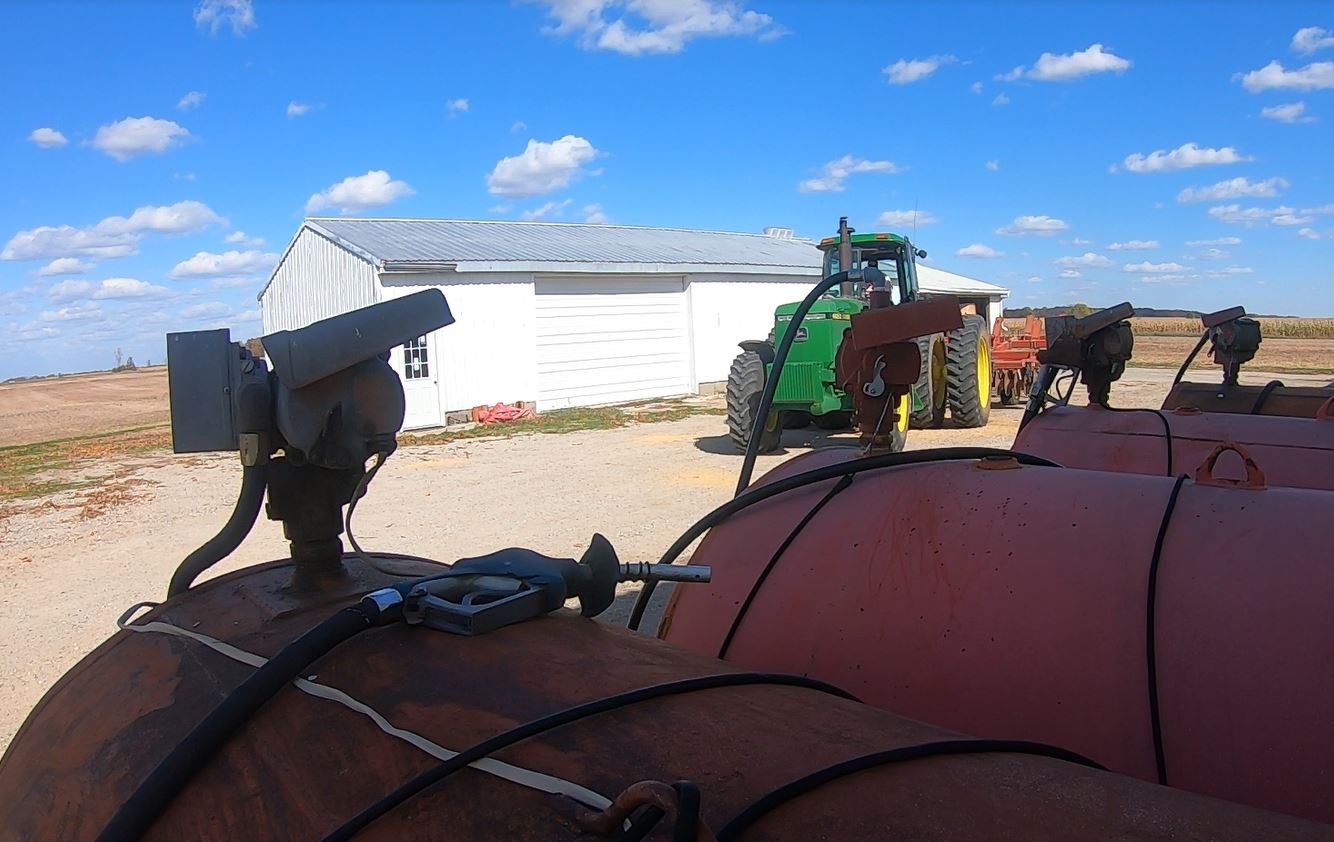Stay Informed
Farmers hope that planning and efficiency will be enough to help them save on fuel costs
High fuel prices are affecting Indiana farmers in both expected and unexpected ways, according to several members from across the state.

Hauling grain, preparing for planting, picking up inputs, keeping pigs warm – all are a lot more expensive than they were a year ago, thanks to high gas, diesel and liquid petroleum (LP) prices.
“It is killing us,” said Kevin Cox of Parke County, saying something many farmers would agree with. His most pressing problem as of mid-April was the cost of hauling grain, but getting his crops planted is another major concern.
“It just takes so much more money. It’s going to have a huge impact on our bottom line,” he said. “We’re minimizing trips and maximizing efficiency.”
While fuel prices have decreased slightly in recent weeks, as of mid-April, the statewide average was $3.95 per gallon for regular gas and $4.91/gallon for diesel, according to the AAA Gas Prices website. A year ago, prices averaged $2.76/gallon for regular gas and $3.14/gallon for diesel.
“In our operation, I don’t think we’re going to be able to make a lot of adjustments,” said Eric Aulbach, who farms in Blackford County. Their farm is entirely no-till, so the Aulbachs have already reduced the number of times their equipment passes through each field. “There’s not a lot of room to cut,” he added.
One thing they have done is to contract almost all their fuel when they’d normally contract only 25% to 40%.
For Mark Bacon of Rush County, the big change will be tillage. He normally has some no-till, but this year, “Practically everything is going to be no-till, so long as I can get the chemicals.”
“I filled up a semi to haul grain a few days ago. It was $700,” Bacon said. “A year ago, it was $300 to fill up that same semi. A year ago, $80 or $90 would fill up my truck, but it was $142 when I filled it up yesterday.”
“It’s really putting a pinch on me and I’m sure everyone else too,” he added.
Isabella Chism of Howard County said Chism Farms isn’t making any major changes, but they did contract for a full year’s worth of fuel, whereas most years, they contract for only a few months at a time.
They also are being very intentional about using fuel efficiently.
“We need to be very conscious of the trips we make between the fields and about moving our equipment around,” she said. Like other farmers, they also are being very careful to combine trips into town.
“During planting, we may not have the leisure,” she said. “That’s why we’re being so conscious now. You need to think about those things now when you can control it.”
Jonathan Spaetti, who farms with his dad and uncle in Spencer County, said that Spaetti Farms is fortunate in that they don’t have to drive very far to sell grain or pick up inputs. They also were able to forward contract their fuel for the year. However, he said, it was more than a dollar per gallon higher than it was last year.
“We should have enough to get through planting,” he said. Even so, the Spaettis are going to reduce the number of passes they make through their fields.
“Input prices aren’t going to go down – or if they do, they never go down as fast as they go up,” he said.
Mark York of Wabash County also is being affected by high fuel prices – but with a difference. As a contract grower of wean-to-finish pigs, his major fuel expense has been trying to keep the pigs warm through a cold winter and a chilly spring.
“Being a contract grower on a fixed income, we growers have control over how well we do with the pigs,” he said. “What we do not have control over are external factors. And it’s costing us dearly.”
In 2021, he paid $1.19 per unit for 20,000 units of LP gas for his brooder heaters. When that ran low, he paid $1.79/unit for another 20,000 units. Because of the cold spring, he has had to buy an additional 20,000 units at $2.49/unit – more than double what he paid in 2021.
INFB President Randy Kron noted that all farmers, including him, are experiencing these challenges.
“The only way to get through it is to do what farmers have always done, which is to adapt, innovate and remain optimistic. That’s what our members do best.”




